How to Clean a Bubbler Pipe - Easy-to Follow Instructions
Over time all smoking pipes with develop a resin on the interior of its walls, especialy when water is involved, as with bubbler pipes. Bubblers can be tricky to clean, but this article will offer the best practices for cleaning, plus useful tips to help get the bubbler completely clean of any resin.
Best Way to Clean a Bubbler
Versus some other smoking pipes, bubbler pipes are not the easiest to get thoroughly clean, so cleaning often is recommended. They are usually a single solid piece of material with some varying curves and tight spaces. Cleaning this kind of pipe is not something you want to put off or avoid, as it can negatively impact the quality of your smoke session.
In general, there are a few methods that are ideal for cleaning bubblers. Soaking is a popular method because of its ease. Granted, you will need to give your bubbler ample time to soak in the cleaning solution, but it is a great way to make sure all the little nooks and crannies are cleaned out. Scrubbing is another possible options, as long as you have the right kind of brush for the specific bubbler in mind.
The exact method you end up using to clean your bubbler is going to depend on the precise model you happen to have, as well as exactly how thorough of a cleaning you are looking to get into. It will also depend on the kind of cleaning solution you have access to and the material your bubbler is made out of. For example, cleaning solutions that are ideal for glass are not necessarily best for silicone pipes and bongs.
However, the information you find in this article will give you a solid foundation to be able to successfully clean most bubblers you come across.
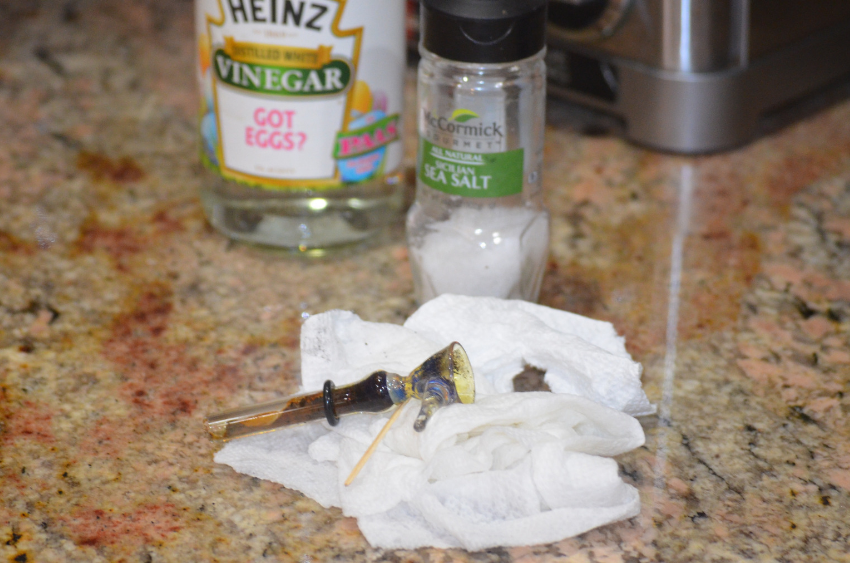
Step-by-Step Bubbler Cleaning Guide
The following are the general best steps to cleaning your bubbler hand pipe.
- Before any cleaning begins, drain your bubbler pipe of any water that may be present. If you have some stubborn water, shaking the bubbler will usually get the standing water out. Be sure not to drop the pipe during this process.
- Once the water has been removed, rinse the bubbler with hot water. This will be done on both the outside and inside of the pipe. The hot water rinse will knock larger hunks of gunk loose and will help prime the remainder to be cleaned in the following steps. Again, make sure to not drop the pipe.
- At this point, your chosen cleaning solution will be used, and what specifically you use will be up to your preference. Options include simple rubbing alcohol and salt, vinegar, or specialty cleaner, like 420 Cleaner. Whatever solution you use, once you have poured it in the pipe, vigorously shake the bubbler. Use your fingers to close any holes on the pipe so you do not spray solution everywhere.
- After shaking the solution inside your bubbler, allow the pipe to sit and soak. Depending on how thorough of a clean is needed, you may end up doing several cycles of introducing the solution, shaking, soaking, and shaking.
- With the solution still present in the bubbler, take a brush and gently scrub the inside of the pipe, as well as anywhere else that has residue. Specialty brushes are available for this purpose, but you can also use something like a general pipe cleaner or q-tip, depending on the exact bubbler you have.
- Once the bubbler has been scrubbed, dump the solution and rinse well with warm water. A good rinse is important because you do not want any residue from the cleaning solution getting smoked.
- Let the bubbler air dry until completely dry. Once this is done, the bubbler is ready for normal use.
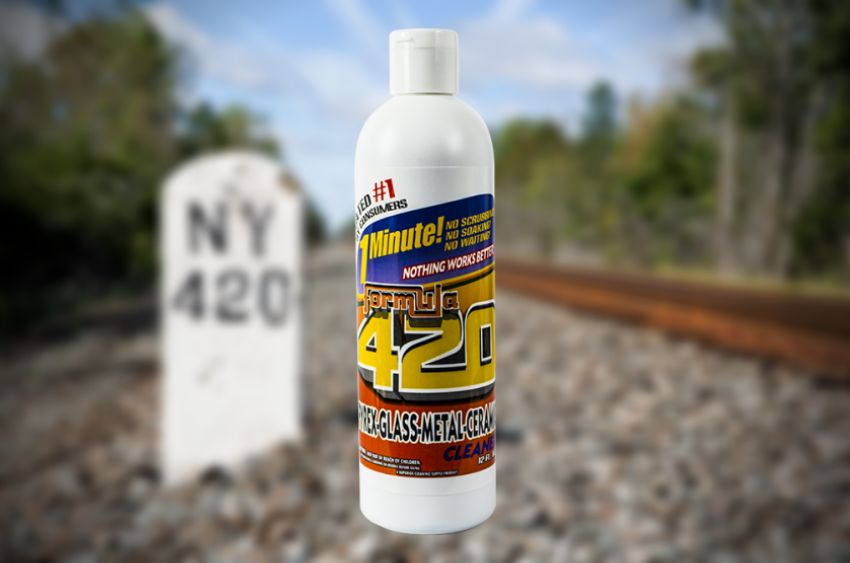
Bubbler Pipe Cleaners
As alluded to in the step-by-step guide, you have a lot of options in what specific cleaning solution you use on your bubbler. Many prefer to go an all-natural route, which options include vinegar, boiling water, and salt (beware of boiling water as it has been known to crack or shatter glass pipes). If you are experimenting to see what cleaning solution is best for your needs, these are easy choices you may be able to find around your home. You can also get real specific and efficient by making sure that the cleaning solutions you are using are specifically for your bubbler pipe.
Specialty cleaners exist. In the case of cleaners like 420 Cleaner, some formulas are specific to the material your bubbler is made out of to make sure you not only get the best clean but you do not damage your pipe. 420 Cleaner also offers an all-natural product, which is ideal for wanting to go all-natural but still wanting the guiding hand of experts.
How to Clean a Bubbler with Vinegar
Vinegar is a decent choice for cleaning bubblers, both for glass and silicone. Most people have at least some vinegar around the house and it can make for a great cleaning agent if you are short on cash or simply do not feel like leaving the house for a more specialized pipe cleaner.
Before you apply the vinegar to your pipe, you will want to be sure to water it down removing chunks and loose resin to give the vinegar an opportunity to be an effective cleaning solution. Remember, your pipe is going to have prolonged contact with whatever cleaning solution you use. If you find that the vinegar is not cleaning to your expectations, you can try using a more concentrated dose, adding salt (which will help scrub services), or you can opt for a different kind of pipe cleaner.
How to Clean a Bubbler with Boiling Water
As you can imagine, cleaning with boiling water will have very clear advantages and disadvantages. It is one of the most efficient ways to clean your bubbler, as most stains and residue will not be able to withstand the extreme temperatures. It is also readily available, as practically anyone has both water and a means to boil it.
However, the method is clearly more dangerous than other cleaning techniques. You run the risk of injuring yourself, but you also run the risk of destroying your pipe. Especially if you are using this technique on glass pipes, the extreme temperatures can cause them to shatter. We recommend that this method not be used on older pipes that may hold sentimental value to you, as well as low-quality pipes that may be prone to shattering.
Also, you will need to be sure to allow the pipe to slowly cool down. Extreme temperature changes on glass can also cause it to shatter. For example, removing the pipe from boiling water and immediately placing it under cold water. As we have said, if you choose this method, it requires the utmost care to protect both yourself and your bubblers. If you are new to bubblers and cleaning in general, we recommend some of the other methods mentioned in this article.
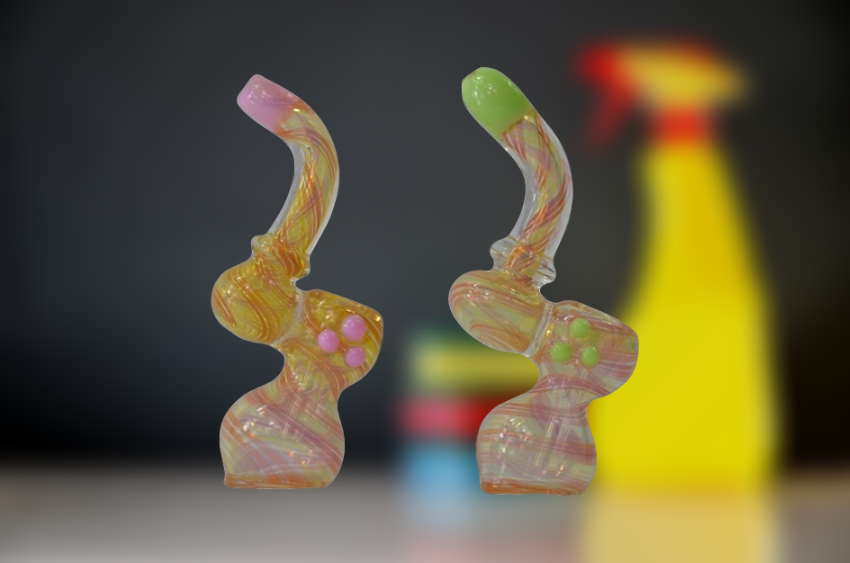
How to Clean a Glass Bubbler
Very, very carefully. Glass is the most popular material for bubblers and it is during the cleaning process that most glass bubblers get damaged. Use care when shaking the bubbler to not throw or drop it accidentally. When soaking, make sure it is in a safe location where it can rest without risk of damage, and when brushing, make sure you do so gently without forcing a brush that may be too large for the given bubbler that you have.
As long as you pay attention to how you are handling the glass bubbler, you should be able to clean it without breaking it.
How to Clean a Silicone Bubbler
Silicone bubblers are a little more forgiving during the cleaning process. They are often resistant to breaking, are bendable, and are more likely to be made out of more than one piece of material. This means you will be able to disassemble the bubbler for a more thorough and easier clean.
Some silicone bubblers are a hybrid of silicone and glass. All that means is you will want to use care in which solutions you use (for example, a solution meant specifically for glass will not clean silicone well). Just be sure to separate the parts before cleaning for best results.
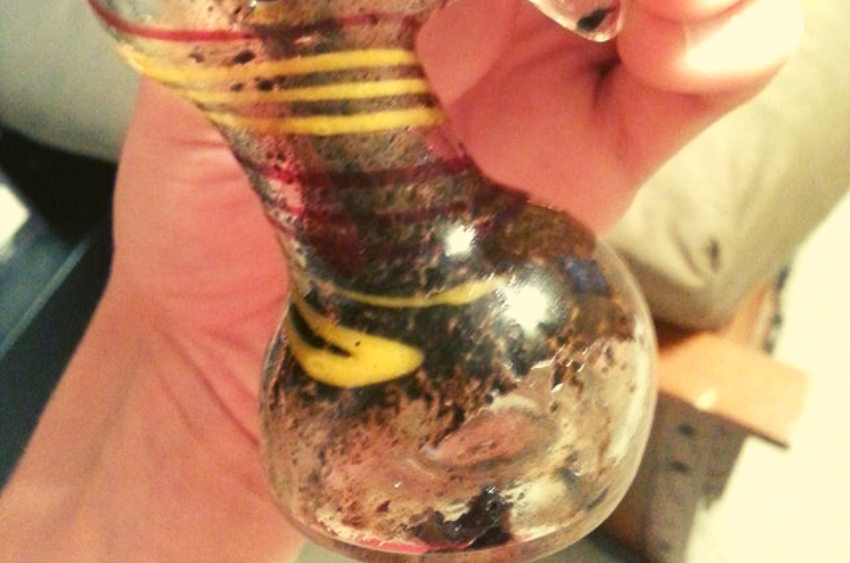
How to Clean Resin out of a Bubbler
Resin can be the stubborn foe of bubbler cleaning, especially if you are using a single piece glass bubbler. It can be hard to physically get to the resin in the various corners and nooks, and smaller bubblers make your options for brushes very limited. However, there are a few tips you can follow to do your best to beat the resin into submission.
First, use salt! Salt acts as a scrubbing agent in whatever solution you happen to be using. It can get into bubblers that other brushes may not be able to, and it can provide a more thorough clean. There is not a special step in cleaning when using salt. It does its job when you are shaking the bubbler with the solution inside, and the more salt the better.
Ample soaking is also key to getting the resin cleaned out. If you find that, after a soak, the resin is still present, consider soaking longer. If you are using vinegar, consider increasing its concentration. You may even want to dump out the used solution and use a fresh application of it.
You may simply need to use a different cleaning solution. If you are using home chemicals that are not getting the job done, consider a specialty solution like 420 Cleaner. This maybe your best bet for particularly stubborn resin.
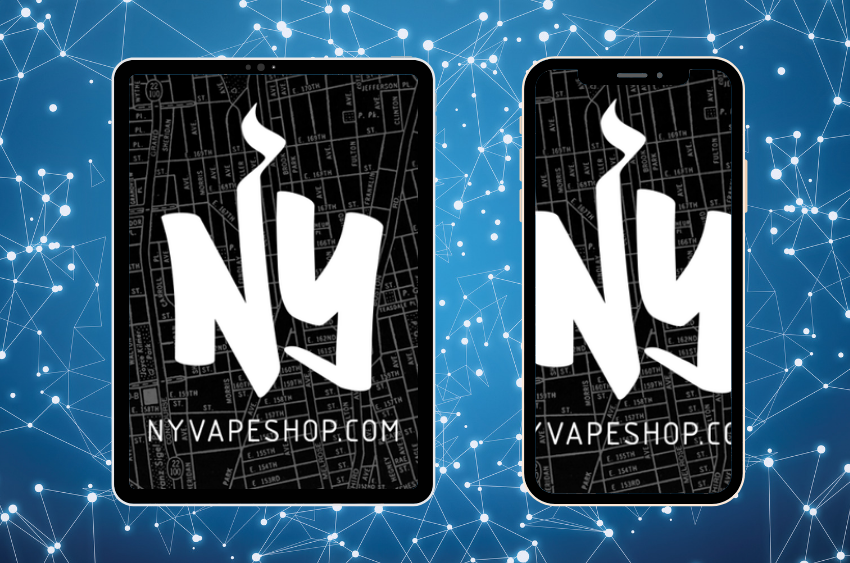
Where to Buy Bubblers and Bubbler Cleaners
While it is growing increasingly more likely to find bubblers in head shops and even vape shops now, you are going to find the best selection and availability through online retailers. It is the best option to find a bubbler that perfectly fits what you are looking for as opposed to having to settle for a bubbler that just happens to be available.
You can find bubblers and bubbler cleaners here at nyvapeshop.com. Not only do we offer a fantastic selection of bubblers and pipe cleaners, but we offer free U.S. shipping with no minimum order required. That makes it easy to find the bubbler you want and get it in your hands without getting hammered with shipping.
We would love to get you with the bubbler of your dreams! If you have questions, reach out to our customer service and we would be happy to set you straight and get your hands on a bubbler!
Related Blog Posts
How to Clean a Smoking Pipe - The Best Way
How to Clean a Bong -- Best Tutorial for Bong Cleaning
7 Smoking Pipes that will Surprise You
Blog Categories
- Home
- Industry News
- Vaporizer Reviews
- Dry Herb Vape Tutorials & FAQ
- Wax Pen Vape Tutorials & FAQ
- Oil Vape Pen Tutorials & FAQ
- Vaping Guides & Information
- Dabbing FAQ & Guides
- Smoking Pipe Tutorials
- NY Vape Shop Listicles
- Vape Pen Comparisons
- Vape Shop How To Articles
- Vape Shop Buyers Guide
- Vape Pen Basics
- Herb Grinder Reviews
- Dry Herb Vaporizer Reviews
- Oil Vape Pen Reviews
- Wax Pen Reviews
- Box Mod Vape Reviews